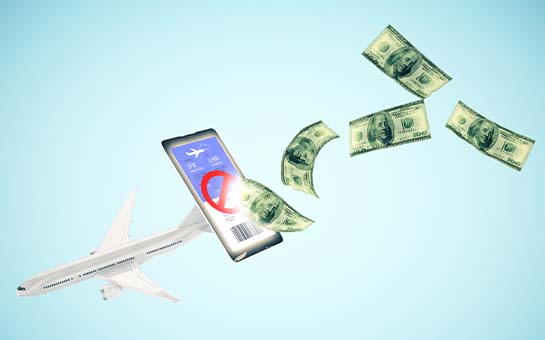The US Department of Transportation (DOT) announced sweeping changes in April to the refund rules airlines in America must adhere to if a flight is cancelled.
Essentially, the new rule removes the airlines’ ability to determine how long a passenger must be delayed before a refund is owed.
Per the DOT news release:
Passengers will be entitled to a refund if their flight is canceled or significantly changed, and they do not accept alternative transportation or travel credits offered. For the first time, the rule defines “significant change.” Significant changes to a flight include departure or arrival times that are more than 3 hours domestically and 6 hours internationally; departures or arrivals from a different airport; increases in the number of connections; instances where passengers are downgraded to a lower class of service; or connections at different airports or flights on different planes that are less accessible or accommodating to a person with a disability.
- Airlines must automatically issue refunds without passengers having to explicitly request them or jump through hoops.
- Airlines and ticket agents must issue refunds within seven business days of refunds becoming due for credit card purchases and 20 calendar days for other payment methods.
The new rule also states that passengers are entitled to a refund if their baggage is not delivered within 12 hours of their plane arriving at the gate for domestic flights, or 15-30 hours for international flights.
Is Travel Insurance Still Necessary with These New Rules?
Two of the primary components of travel insurance are travel delay coverage and baggage delay coverage, which provided the insured with financial compensation in the event of a delayed flight or delayed bag. But is it still necessary with the new DOT rules in place?
In a word: Absolutely.
These new DOT rules may be challenged by Congress, making their implementation anything but guaranteed. In addition, the DOT states that airlines will have six months to comply with the new rules, meaning your summer travel plans won’t necessarily be covered.
It’s also important to remember that a lot more than just your airline ticket costs are at risk when a trip is delayed. You may have to change your hotel or rental car arrangements, you may need to pay for additional childcare, or you may have to miss events that you’ve already paid for. Travel insurance can provide coverage for all of these things and more. Travel insurance can insure any prepaid, nonrefundable expense so long as the claim is made for a covered reason.
Finally, it’s important to remember that the DOT is an American entity. If you’re flying on a foreign airline between foreign countries, their rules will not necessarily apply.
Regardless of government rules or laws, travel insurance has been protecting travelers’ finances throughout the world for decades. No matter what the future of these new DOT rules ends up being, travel insurance will be here to protect you too.
